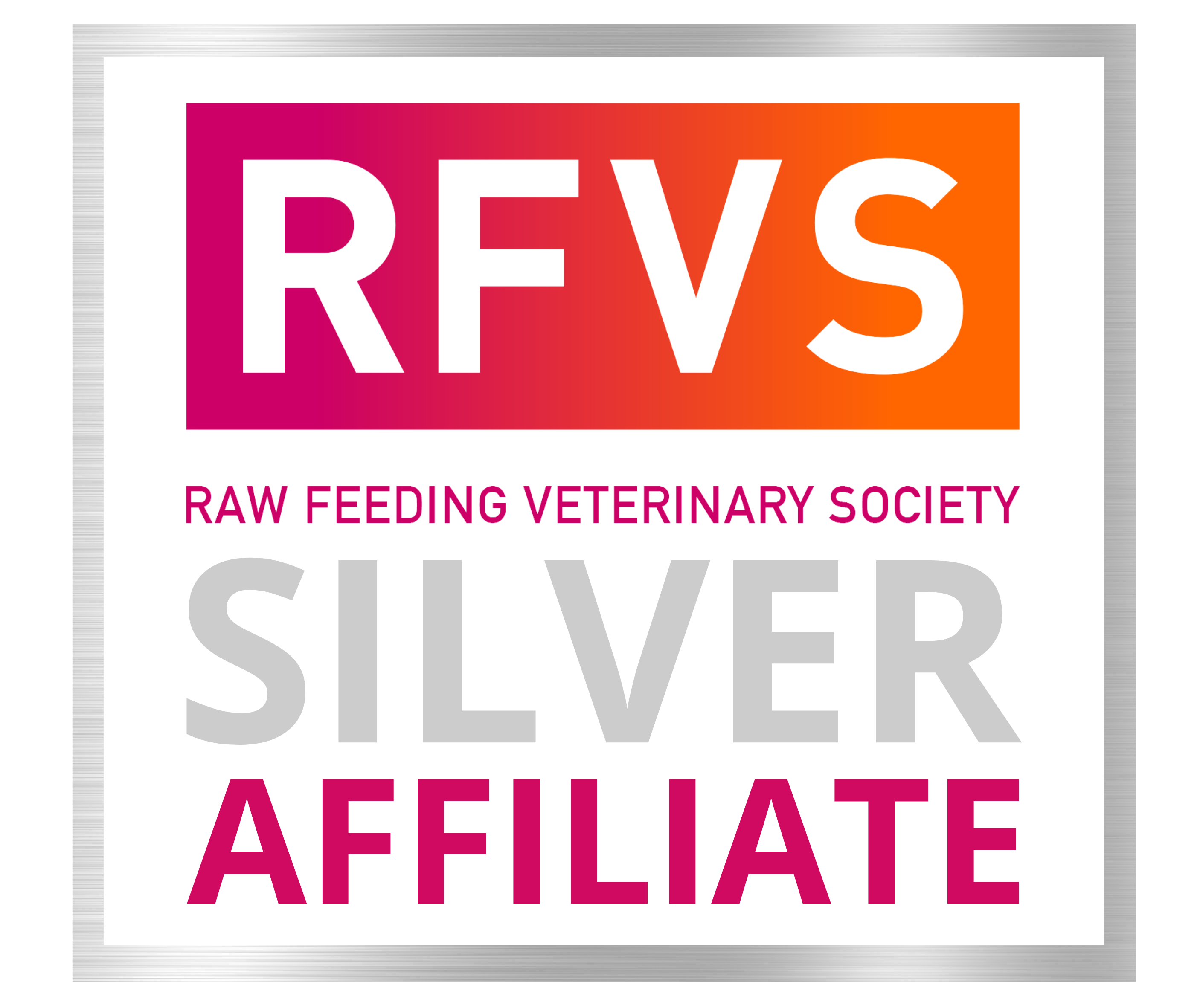Hyperthyroidism in Dogs
HYPERTHYROIDISM VS HYPOTHYROIDISM
There has been some talk amongst raw feeders about the potential for diets with a high content of raw necks to cause hyperthyroidism in dogs. Hyperthyroidism is defined in the Veterinary Merck Manual as follows:
"Excessive secretion of the thyroid hormones, T4 and T3, results in signs that reflect an increased metabolic rate and produces clinical hyperthyroidism. It is most common in middle-aged to old cats but also develops rarely in dogs."
This is not to be confused with hypothyroidism:
"In hypothyroidism, impaired production and secretion of the thyroid hormones result in a decreased metabolic rate. This disorder is most common in dogs but also develops rarely in other species, including cats, horses, and other large, domestic animals."
A hyperthyroid study looked at a group of dogs with raised thyroid levels. From these dogs, the authors selected the 12 dogs that were on a raw or BARF diet; or a commercial diet with added daily dried necks. The owners of eight of the dogs either stopped feeding the necks, or switched to a commercial diet, and all clinical signs of hyperthyroidism was reversed within a few days.
Hyperthyroidism caused by a diet high in raw/dried necks appears to be uncommon, as there is little reference to it in the literature, however it is a risk if excessive thyroid gland is included in the diet.
At Raw Essentials we feed our dog and cats chicken, turkey, duck, veal and lamb necks. To mitigate the risk of thyroid issues, we only source these from the human-food chain - the thyroid tissue has been removed.
Where wild prey is in our minced mixes, there is an outside possibility that a small amount of the thyroid gland might be included, however excluding the heads of prey markedly reduces the chance of this and the amount would be less than prey proportionate.


